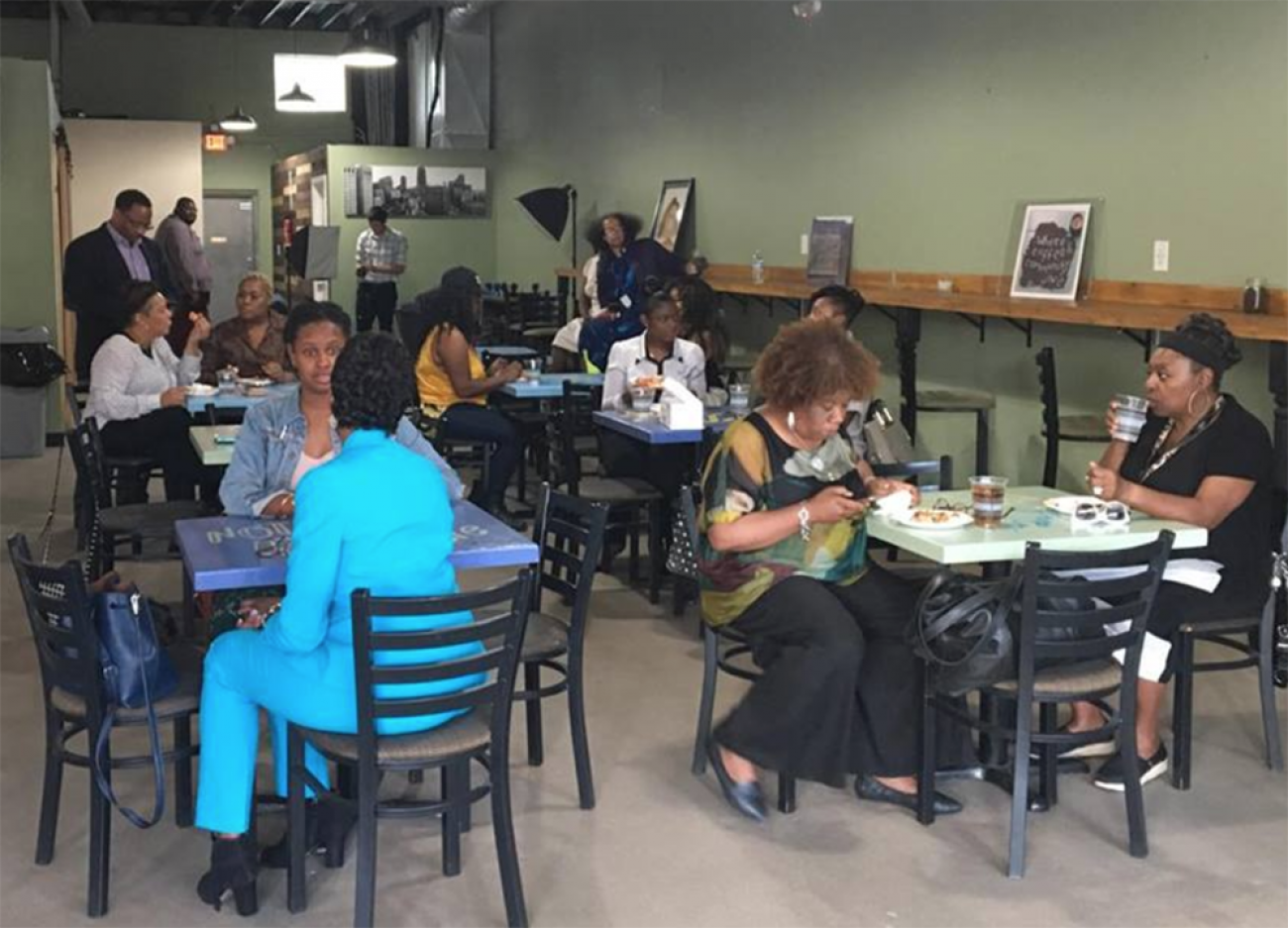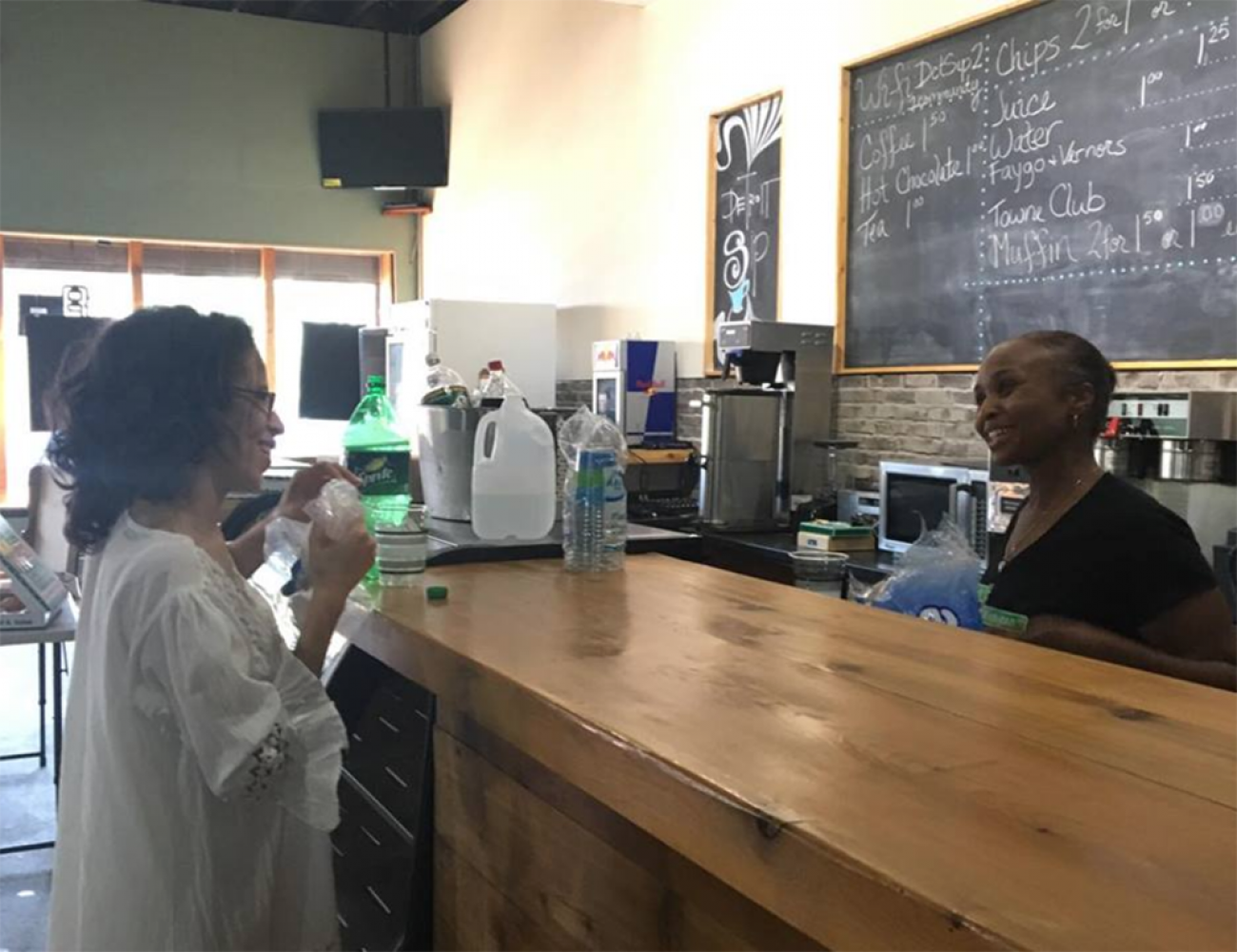Why residents left Detroit. And why some are coming back. (video)
City or suburbs?
For longtime residents of Detroit, the decision to stay in their beleaguered city while neighbors fled was at times as much a political statement as an economic reality.
For all the development in Detroit’s business core, the city continues to lose more residents than it gains. The flood of departures has slowed to a relative trickle and, given all the new residential development in downtown and Midtown, may yet reach a positive tipping point.
Still, the decision to stay or leave is one that has gripped (and divided) Detroit residents for generations, with African-American families following the trail north to Oakland and Macomb counties taken by whites since the 1950s.
Over fifty years later, some Detroiters say they believe a lack of unified community remains at the heart of the city’s struggles. They also hope it is the key to unlocking the city’s potential.
On Wednesday, Sept. 20, Detroit residents gathered with Bridge Magazine/Detroit Journalism Cooperative outreach coordinator Dwayne Barnes to discuss why they left or stayed. The goal was to dive into the nuance of personal decision-making, to dig beyond the broad strokes narratives and statistics as to why Detroiters stay put or decamp to the suburbs, then often return.
“Individual choice is what determines what the leavers do, or what the stayers do,” Barnes said, adding that he wanted the discussion to “pull at the gray area.”
The group gathered at Detroit Sip, a soon-to-be-opened coffee shop in Detroit’s Bagley neighborhood near the campus of University of Detroit-Mercy, owned by local Jevona Watson.
The conversation ranged from the city’s troubled public schools, to economic development, to gentrification, crime, and personal history. No matter the topic, no matter if the individual left the city or stayed, one theme wove through the evening: community.

A vanishing community
“On my way over here today, I stopped by the bank, the ATM, ” said former Detroit resident Glendoria Colson. “I felt very, very, very sad. As I drove into the area, I looked at how filthy, how dirty it was...I feel Detroit has let go of our communities.” It’s that feeling that drove her away from the city. “People don’t seem to care.”
Watson, the coffee shop owner, is not among them. She said she has tried to clean up the area on McNichols, a few blocks west of Livernois, with mixed success. At first she tried cleaning the whole street herself, but quickly tired, deciding, “I’m only going to clean the trash that’s right in front of my building… I did that, but the wind began to blow. I said, ‘Alright, God, I get the lesson… My neighbor's trash becomes my trash….”
She contacted the owners of neighboring buildings to mount a streetwide cleaning effort. It never happened. “I ended up having the block cleaned up myself because there wasn’t active ownership” of the other structures.

Ashley Michele also cited a breakdown in community spirit as the reason her family left the city. “My parents,” she said, “moved me out [of Detroit] because of (those) exact things,” said Michele, who has since returned to the city. Her parents chose to send her to school in Southfield, and then Farmington, in Oakland County.
Dr. Truman Hudson, a Detroit businessman, identifies with that parental struggle. “I got tired of playing the school shuffle,” he said of his children. An inability to acquire a stable education for his children drove his family to buy a house outside the city.
“Education is probably the most disheartening part of being in Detroit,” agreed Watson. “I am a DPS [Detroit Public School] grad, K -12. Up through last year my daughter was in DPS. I get one chance to get it right with her.”
With her one chance, Watson decided to send her daughter to Oakland County.
“It’s my desire to bring her back when there is something to offer,” Watson said. The school her daughter used to go to “is an insult to our children… She deserves a room that doesn’t have mold and mushroom growing in it.”
“When you go across 8 mile, it doesn’t get much better,” adds Janice Rowley, a language arts teacher at Detroit’s Renaissance High School, referencing the road that divides the city from suburban counties. “Michigan, the state, has a problem.”
“I don’t think, as a community, we work together. It’s not just the teacher,” added Kiarra Ambrose. She has worked in DPS for 10 years, and said she has found that with teachers and students constantly flowing in and out of schools, there is “no sense of community...As a whole, if we don’t do a great job of working together, the school systems will fail. If the only education your child gets is as school, then your child isn’t getting an education.”
“Once the public schools [went downhill], it took away a lot of dreams…” current resident Annjell Williams reminisced. She can recall a time in her neighborhood when residents had access to a bookmobile and skate rink. “In the 70s, we had community… I feel like it’s all going to come back,” she adds. “It’s just going to take us to reinforce it.”
A Detroit love affair
Detroit’s struggles, which Michele said drove her parents away decades ago, are the same reasons she has returned to the city. “Some of us know about resources and things like that,” she said. “I may be able to help my community, because I know of those resources.”
She urged conversation participants to invest in their neighborhoods. “Go on buildingdetroit.org (the city’s website for home purchases)...They have homes for $1,000…”
Hudson, who left because of Detroit schools, said he continued his economic investment in Detroit even after he removed his family. He said he has owned a business in downtown Detroit for 22 years and with “business I can take the risk because of the value proposition.”
Many people, he said, ask why he doesn’t move his business to Southfield where he could pay less in rent than downtown.
“I have a love affair with Detroit. She’s a lady what don't let me go….That’s why I’m here.”
Watson took a similar path in sending her daughter to Oakland County, but opening Detroit Sip on West McNichols. When it comes to reviving a deep sense of community, she said it is up to individuals, not institutions.
“We have to set the bar where we want it to be.”
See what new members are saying about why they donated to Bridge Michigan:
- “In order for this information to be accurate and unbiased it must be underwritten by its readers, not by special interests.” - Larry S.
- “Not many other media sources report on the topics Bridge does.” - Susan B.
- “Your journalism is outstanding and rare these days.” - Mark S.
If you want to ensure the future of nonpartisan, nonprofit Michigan journalism, please become a member today. You, too, will be asked why you donated and maybe we'll feature your quote next time!

